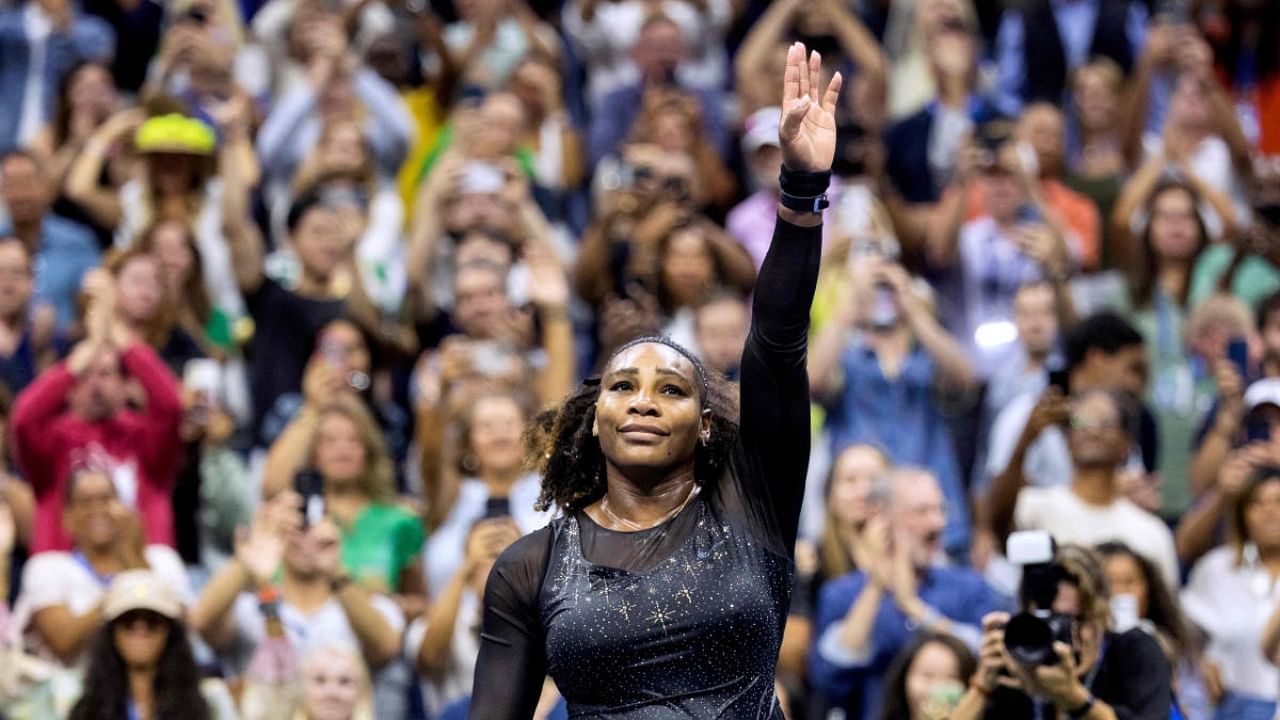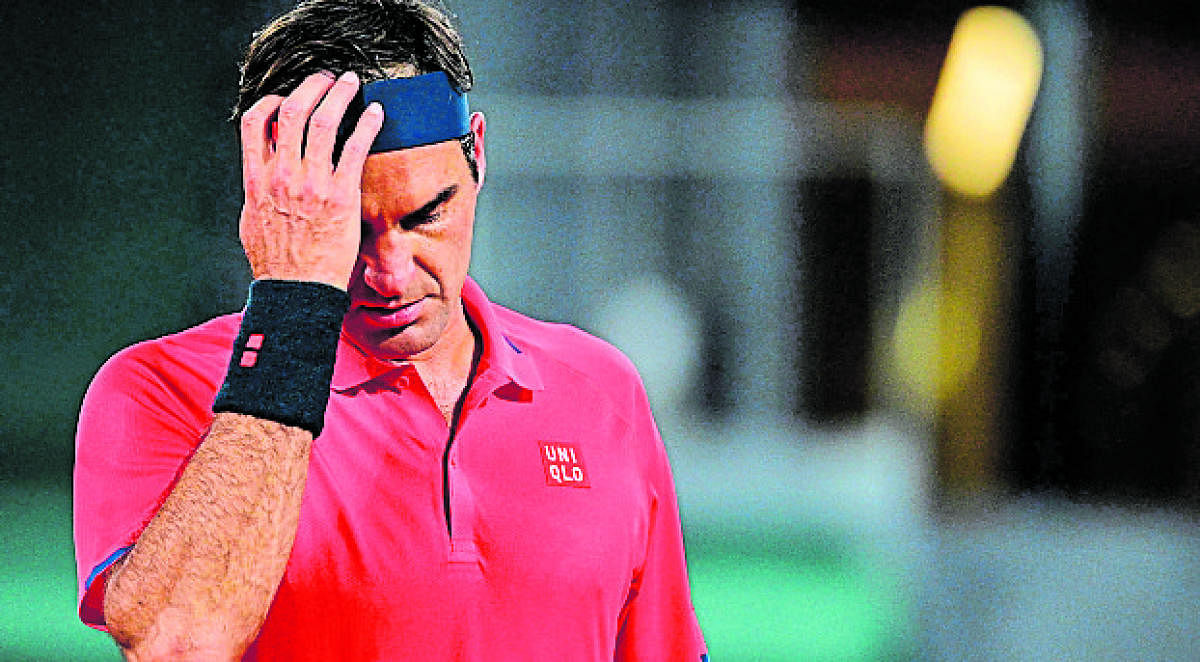

‘Yes, it is exactly like being institutionalised and that’s why it’s so hard...” Michael Holding confirms while speaking to DH about the effect of sport itself and why the decision to step away weighs heavily on those at the crossroads.
While ‘institutionalised’ seems like a stretch at first given the inescapable understanding of the word, Holding’s rationale grows on you for it dives into a rarely-addressed aspect of sport being overwhelming at the beginning, the middle and especially at the end.
“... all you have done all your life is play a sport or choose something to be professional at. When that journey ends, it’s really hard for some people to shake off their past and move into a new phase,” Holding says from the Caribbean.
Seamlessly, Holding traverses to a cold morning in 1989 in Derby when he decided to call it quits. “I played first-class cricket for a bit after my last Test in 1987, but I knew I had to end it when I woke up, drew the thick curtains in the room at the ground, and hoped it was raining. I knew I was done then. I went to the coach right then and told him ‘I’m done’,” he says. “As for commentary, I had a personal reason to quit. I don’t want to get into that, but I also didn’t like the direction in which the sport was going so I had to,” says Holding, who retired from the commentary box after a 31-year run last year.
Holding seems to have had it all together when making these decisions until he lets slip that he retired a couple of years later than he would have liked in both cases. This is a norm because athletes very rarely know when to stop or how to stop.
Save for anomalies such as Ian Thorpe, Eric Cantona, and, more recently Ashleigh Barty, the majority find ‘the end’ too depressing, often prolonging careers long enough to prompt a not-so-gentle prod from those on the outside - ahem, Sachin Tendulkar or Kapil Dev.
And some athletes find it hard to even address the elephant in the room. This is why Serena Williams, by her own admission, stayed away from the word ‘retirement’ in her tell-all story in Vogue. Instead, arguably the greatest female tennis player of all time said: “Evolve away from tennis.”
Williams said while other tennis players have had a sense of relief or joy in retiring, it has not been the same for her, as she has been agonising over leaving her tennis racket behind. “I don’t want it to be over, but at the same time I’m ready for what’s next,” Williams wrote.
Serena has been in the business of professional tennis for 27 years, and at 41 she has little choice but to frame the glory days of an athletic past for nostalgia.
Of course, there have been athletes who have mitigated the effects of time and age by playing at the highest level with a high success rate, but that only lasts so long despite science playing a key role in extending lives and careers. Eventually, though, they all come face to face with what lies beyond the curtains.
“I was lucky because I interacted with a lot of people in my life and I wasn’t addicted to the spotlight,” says Holding. “I know people it’s very hard for, and some of those people retired ages ago. Being a star is a big part of their identity so they find it hard to cope, but it’s prudent to look at it (sport) as a phase in our life and not our life.”
“Also, how could I think I was a great or a star when I had Sir Vivian Richards in my team,” he adds before letting out a baritone-complementing laugh.
Eddie Streem, a sports psychologist out of Edinburgh, insists that the issue with retirement can’t be reduced to an athlete’s want for fame and money. He maintains that the actual concern is the routine, at least that is what his upcoming study is looking to ascertain.
“Athletes are all about routines. They are addicts to it,” he says. “In fact, there have been studies in the past which show that areas of the brain that light up during a sports routine are not too different from those that light up when you smoke. Smoking is a routine too, just a really bad one (laughs).
“Athletes get that ‘high’ from sports instead. They really don’t have to do drugs because their brain is capable of replicating what they could feel if they were on drugs. We had done some tests on an ultra-marathon runner recently, and we found out that they actually experience out-of-body experiences and some even hallucinate.”
What Streem is trying to say in his own peculiar way is that a routine can be addictive and stepping away from the routine can be hard. Roger Federer?
Suzanne Cosh’s 2013 paper noted another important aspect of the hardships of retirement. The paper published in the Australian Journal of Psychology noted that athletes felt something akin to depression even when they maintained their routine. Cosh’s paper suggested, instead, that the high of competition and the sense of purpose it brings plays a bigger role.
“I think both those factors play a part,” says Ashish Ballal, the former Indian hockey goalkeeper. “Of course, it’s hard, especially for people who have played for over twenty years. In most cases, they don’t know anything else. I played for a little over a decade and I felt that way for a while, but I had plans in place.
“In my case, I was unceremoniously dumped by the federation so there was no real retirement, but we had just won an Asian Games gold so I had no regrets. As for the routine, most of us from that team have maintained our training routines. See, Dhanraj Pillai for instance, he still lives as he used to when he played.”
“Frankly, shelf life is more often dictated by external factors rather than how the athletes themselves feel,” he adds.
When asked to explain, Ballal cites Serena’s example, saying she could have played on for a while longer had she not paid heed to the naysayers. Ballal went so far as to say that some athletes take care of themselves so well these days that they can push 50 at the international level.
“For me, the end came when I hurt my wrist,” says Aparna Popat, a former national badminton champion. “In a way, I was prepared for it. I knew but it was hard to get back into society. You live on a different paradigm, almost, when you’re an athlete.
“What helped me was that I didn’t attach my identity to my performance. Once that distinction is made, expectations are lower and come time to retire, it doesn’t weigh you down.
“The hardest thing to digest is when you realise that the sport doesn’t need you anymore. That’s depressing. Perhaps why they say an athlete dies twice in his/her life: once when they retire and once when they actually die.”
Perhaps an athlete’s pursuit of greatness is but a poorly veiled quest for eternal relevance, immortality. Only, no one wins. Maybe a little bit of delusion is not so bad after all.